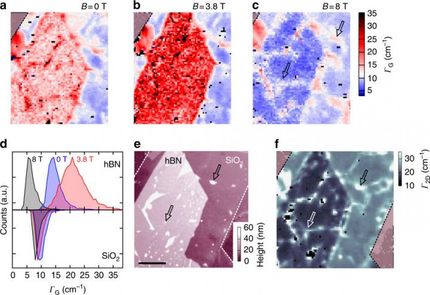Unknown key technology: what Germans think of nanotechnology
Advertisement
Under the name of NanoView, the Federal Institute for Risk Assessment (BfR) has completed a research project on the perception of nanotechnology by the German population and media. Already in 2007, the BfR investigated how the German population perceived nanotechnology and how the topic is presented in the German media. NanoView was an extended investigation, taking into account a large number of additional aspects. It probed the question whether the population's perceptions and attitudes towards nanotechnology have undergone changes over the last five years. An additional question was whether the presentation of nanotechnology in the media has undergone any change. "The current results show that the majority of respondents are still largely unfamiliar with the term nanotechnology. At the same time, fewer reports on the subject appear in the media than five years ago", says BfR President Professor Dr. Dr. Andreas Hensel. "We have therefore developed a communication strategy which addresses consumers’ information deficits and information needs identified in the study."
The current results of the available representative population survey show that consumers are now generally less aware of nanotechnology than in 2007. At the same time, however, concrete nanotechnological applications in the areas of dyes, textiles and cosmetics have become better known. Despite the existing knowledge gaps, the benefits of nanotechnology is seen by a clear majority to definitely outweigh any potential risks. A noteworthy finding of the study is the differences between the sexes. Thus men’s attitudes towards nanotechnology are clearly more positive than those of women; men are more likely to advocate nanotechnology. The pronounced differences were subsequently taken into account in the development of the communication strategy for improving consumer information. The strategy was, in fact, based on the findings of the study.
The presentation of nanotechnology in the German media since 2007 corresponds to the results of the representative population survey. A total of 591 articles appearing in the following print media were analysed: Frankfurter Allgemeine Zeitung, Süddeutsche Zeitung, die tageszeitung, Frankfurter Rundschau, Die Welt, Financial Times Deutschland, Die Zeit, Spiegel, Focus and Bildzeitung. Overall, the number of articles on nanotechnology has been decreasing in the period under review. At the same time, the articles appearing in the years from 2008 to 2012, were more substantial and more application-oriented in their focus. The majority of the articles appeared in the science section of the various daily newspapers and journals. Similarly to the representative population survey, media reports too have a clear emphasis on the benefits of nanotechnology. There are hardly any articles that focus on or even mention the potential risks.
It can be said, then, that nanotechnology is a field that is predominantly seen in scientific terms. Despite the existing knowledge gaps, the population perceives it as a technology the benefits of which clearly outweigh any potential risks. By implementing a targeted communications strategy, the BfR strives to make a contribution to closing the knowledge gaps. In particular, the different information needs of men and women must be taken into account: men tend to prefer fact-based information about nanotechnology, whereas women would like recommendations relevant to everyday life that they can easily convert into concrete behaviour.




























































